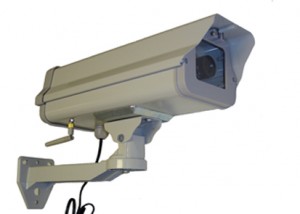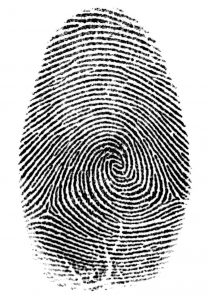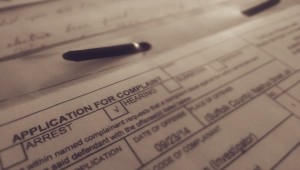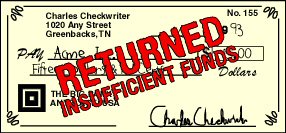It is common for client’s to ask me about fingerprint evidence. I am often asked the following questions: Will the prosecution test evidence for fingerprints? What if my prints are on the item? Should we get out own fingerprint expert? Will it help if my prints are not found at the scene? In other words, should we test the evidence if the prosecution doesn’t? My answer naturally depends on the individual circumstances of each case. A recent Massachusetts Supreme Judicial court case will likely make the answer to one of these questions much clearer to my clients. Continue Reading
Articles Posted in Theft Crimes
Proving Intent in Larceny By False Pretenses Cases
Larceny over $250 by false pretenses is a felony in Massachusetts under G.L. c. 266 Section 34. The law simply states that “[w]hoever, with intent to defraud and by a false pretense, induces another to part with property of any kind or with any of the benefits described in sections 33 and 33A shall be guilty of larceny.” Many cases implicating facts consistent with this crime involve contractors. Traditionally, these disputes were resolved through compromise or, in more extreme instances by civil lawsuit. Recently, it has become more popular to treat larceny by false pretenses cases as criminal matters. Defending these cases can be difficult as nearly every prospective juror can recall a situation where he was “screwed” by a builder, remodeler or contractor. This post examines a recent Massachusetts case that reveals exactly what the prosecution must prove to show you intended to commit this crime. Continue Reading
Judges Should Dismiss Larceny and Shoplifting Cases Tainted by Store Security Personnel
I cannot even begin to put a number to the amount of calls I get from people bullied by store security personnel into confessing to crimes they did not commit. The scenario is always the same. Either a patron or an employee of a store (usually a larger store with many branches) is suspected of stealing. In the case of the patron it is typically goods. The employee matters more often involve money. The suspect is confronted by a loss prevention officer and brought into a room in or near the store. They are lied to, bullied and coerced into confessing and/or signing a statement admitting to the act and promising repayment. In fact, many of the people accused are one hundred percent innocent yet they now face an uphill battle defending a larceny or shoplifting case. This post explains how this can happen and why judges should dismiss larceny and shoplifting cases in these situations.
The Importance of Legal Representation at a Clerk Magistrate Hearing
Over the years I have repeated my strong belief that you need a lawyer at any criminal proceeding in Massachusetts courts. Recently this sentiment became apparent to one of my clients who questioned the need for legal representation at a clerk magistrate hearing. He really thought that he could handle a particular situation on his own and soon realized that proceeding that way would be a major mistake. This post discusses aspects of that case with an emphasis on the importance of being properly represented in a criminal court proceeding. Continue Reading
How Do I Find The Right Criminal Defense Attorney For My Case In Massachusetts?
For most people, being charged with a crime is an unnerving experience. The first thing someone might do is get on the Internet and research the statute under which he has been charged. This is a really bad idea. You will look at the statute and see a potential jail or state prison sentence. Panic will start to set in. So, you might next use the Internet to find a criminal defense attorney. The website might provide you with similar information. This might not make you feel any better. Keep this analogy in mind. When you don’t feel good you might go to the symptom checker on the Internet. And guess what? You will quickly learn that you have a terminal illness. Yet once you meet with a doctor you find out that you only have a pulled muscle. So while the Internet and criminal lawyer websites might be a good starting place for representation you have to do more to find the right person to represent you. Here are my thoughts on how to find the right criminal defense attorney for your case. Continue Reading
Defending College Students Charged With Shoplifting
One of the most common criminal charges college students face, particularly in Massachusetts is the crime of shoplifting. The courts in Boston see a significant number of these cases. The last thing a college student can afford is having a criminal record so effective, experienced legal representation is a necessity. Our office has been defending college students for nearly three decades. We have managed to get countless shoplifting cases dismissed and we have made sure that our clients have left the courthouse without having a criminal record. Successfully defending college students charged with shoplifting is something in which we take great pride. Continue Reading
How Can I Get A Larceny Case Dismissed?
Larceny cases fall into two general categories in Massachusetts. Larceny under two hundred fifty dollars is a misdemeanor. Larceny over two hundred fifty dollars is a felony. The former is punishable by up to one year in the county house of corrections and the latter by up to five years in state prison. The felony version of larceny is often charged in district courts in Massachusetts meaning that the prosecution is not seeking a state prison sentence. When larceny cases involve disputes over money the person accused is often surprised at how the matter can be charged criminally. In this situation people call will me and ask “how can I get a larceny case dismissed?”. This article examines one of these cases. Continue Reading
Can I Be Prosecuted For Bouncing A Check In Massachusetts?
Forty-nine out of the fifty United States have laws making writing a bad check a crime. The crime is known as larceny by check. The Massachusetts law prohibiting this conduct is G.L. c. 266 Section 37. That statute makes it a crime to write or pass a check knowing that there do not exist sufficient funds to cover the check. Simply passing the instrument satisfies the prosecution’s burden of going forward with these charges unless the accused covers the bad check within two days of being notified that the check has bounced. Fraudulent checks exceeding two hundred fifty dollars can result in a felony complaint issuing. Several times each month I get a call about one of these cases. The client usually asks if he or she can be prosecuted for bouncing a check. The answer is usually “yes, you can be prosecuted or that crime” however the likelihood of being convicted depends on factors discussed below. Continue Reading
Danvers Store Employees Charged With Larceny Over $250 in Salem District Court
An article in today’s Salem News discusses a scheme used by local retail store employees to obtain goods without having to pay for them. Apparently five employees used portable scanning devices issued by the store to ring up sales for fellow employees. Some of the items would be voided out so it would look like the employee was paying for one item when in fact the items voided out would be taken as well. Improper refund credits were applied to gift cards and the defendant’s personal credit cards as well. The gift cards were then used at the store to make purchases. It appears that the defendants were charged with larceny over $250, a felony in Massachusetts. Continue Reading
Continue Reading
Just How Serious Is Possession of Counterfeit Money in Massachusetts?
Over the years I have defended several cases involving the possession of or passing of counterfeit bills or money. Some of these cases were prosecuted in the district court and others in superior court. Interestingly enough, some of the more serious cases were prosecuted in the district court and vice versa. Initially, very few of my clients knew the severity of these charges. Most of them thought it was no big deal until I told them a little bit about the counterfeit money statutes in Massachusetts. Then they panicked. So, just how serious is possession of counterfeit money in Massachusetts? This post examines that question.
 Massachusetts Criminal Defense Attorney Blog
Massachusetts Criminal Defense Attorney Blog










